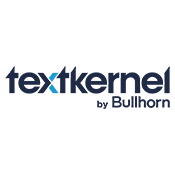In a rapidly evolving business environment, the integration of Artificial Intelligence (AI) in recruitment is not just an innovation but a necessity. The “AI in Recruitment: Outlook 2024” webinar unveiled the unparalleled potential of AI, especially the new Generative AI (GenAI) e.g. LLMs like ChatGPT, to revolutionize recruitment. This webinar was a journey through AI’s current capabilities and its promising future in reshaping hiring practices.
NOT ONLY CHATGPT: THE COMPREHENSIVE IMPACT OF AI ON RECRUITMENTDISCRIMINATION IN THE JOB MARKET
While tools like ChatGPT have made it easier to develop proof-of-concept applications of AI for recruitment purposes, our discussion ventured beyond these initial steps. We delved into the myriad ways AI can empower recruiters to not just streamline hiring processes but also to anticipate and adapt to future trends.
“We believe that AI should be used not to replace a human decision but actually to support and facilitate a human decision. So AI must be designed with this principle in mind.” Mihai , Head of R&D at Textkernel
The conversation also touched upon the critical importance of understanding new AI legislation, ensuring businesses are not only leveraging AI to its full potential but doing so within the bounds of responsible and ethical use. You can watch the replay here.
In this blog, we will dive deeper into the topic of AI and its implications for the industry. We’ll explore how integrating AI into your processes not only enhances operational efficiency today but also future-proofs your business against the rapidly evolving demands of the global job market.
“AI will empower all of us to do our jobs better, especially generative AI. Some of the routine things would be automated. And I think that will be the trend in 2024 in recruitment for some of the tasks like first contact, candidate engagement and so on. And the simple things would be picked up by AI. And I think the place for the recruiter would still be the same, to build a connection.” Mihai, Head of R&D, Textkernel.
AI TRENDS TRANSFORMING RECRUITMENT IN 2024
In 2024, the recruitment industry is at the cusp of a revolutionary shift, thanks to the integration of GenAI. Here’s a glimpse into the pivotal trends:
– Revolutionizing Efficiency: GenAI empowers organizations with unprecedented efficiency, particularly in automating recruiter tasks like candidate engagement.
– Automation and Talent Acquisition: Enhanced HR operations through AI-driven automation, improving talent acquisition and people management.
– Focus on Core Strengths: AI alleviates the burden of mundane tasks, allowing recruiters to concentrate on building relationships and connecting candidates with their dream jobs.
– From Experiments to Products: The transition from GenAI experimentation to the deployment of GenAI-powered products is poised to redefine recruitment strategies.
– Responsible AI: Textkernel leads in Responsible AI, focusing on ethical integrity, bias mitigation, transparency, and compliance with regulations like the EU AI Act and the NYC AI law.
“The European Act it’s not the first regulation. There is one regulation that’s already in effect and that’s the New York City AI law, which looks at the systems that you use in recruitment for matching, are they biased or not? And I’m proud to say that we are probably one of the first companies that have had our Match system audited and we passed flawlessly with that.”
This evolution signifies not just a technological leap but a strategic advantage in humanizing and streamlining the recruitment process, making it more efficient and focused on the human touch.
KEY CONSIDERATIONS FOR INTEGRATING AI IN RECRUITMENT: A STRATEGIC R&D PERSPECTIVE
As we explore the potential of GenAI technologies within recruitment processes, understanding the strategic nuances becomes crucial. One critical aspect highlighted during our webinar underscores the balance between technological advancement and ethical responsibility:
“It’s a reality that regulation is always behind technology… The best way to approach it would be to ask questions like, was this AI system designed the proper way? Do you trust that provider? Does that provider have a responsible AI policy or risk management put in place? This is everything that the EU AI Act will require. So if you’re applying any kind of AI in recruitment, you want to satisfy certain requirements.”
This insight emphasizes the need for due diligence when selecting AI providers for recruitment, ensuring they are designing their AI systems with ethical considerations in mind and compliant with impending regulations such as the EU AI Act.
Further integrating AI responsibly involves critical assessments of potential biases and the suitability of AI for specific tasks within recruitment processes:
“When you design products around AI, the first question to ask is if AI is even the right tool for that job? For applications like generating vacancies or maybe interacting with a candidate, the risk of AI and AI bias is much more limited. But when you use it, for example, for matching people and jobs, that should be a very careful application.”
This perspective encourages a thoughtful approach to AI integration, focusing on minimizing biases and ensuring that AI applications are appropriate and beneficial for their intended use.
Integrating AI in recruitment is not just about leveraging new technologies but doing so in a way that is responsible, ethical, and aligned with the best interests of both employers and candidates. It involves a careful evaluation of potential tools, a clear understanding of the regulatory landscape, and an unwavering commitment to minimizing bias and enhancing the recruitment experience.







